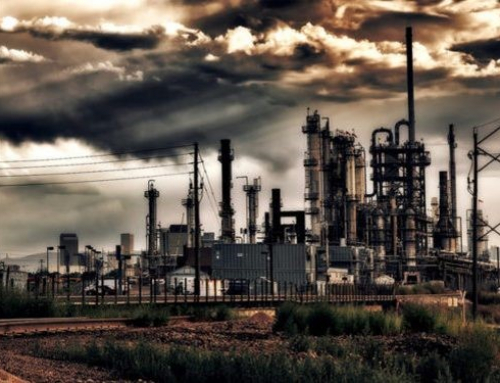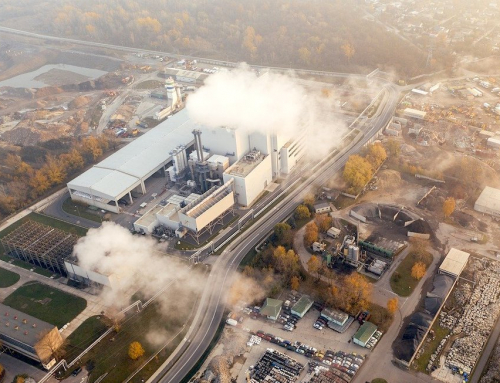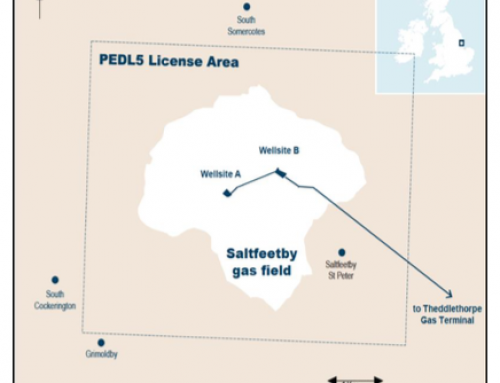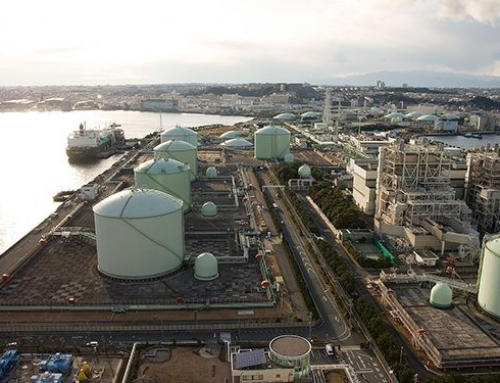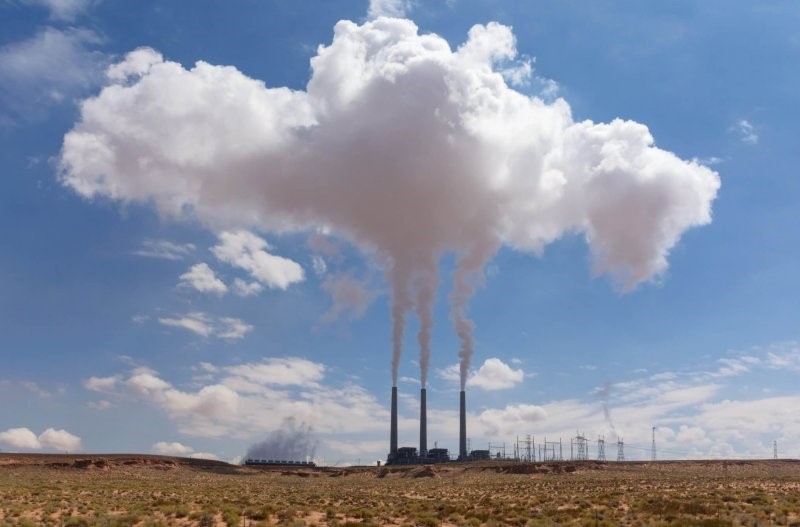
Arizona’s Navajo generating station, closed at the end of 2019. Image: By Myrabella, via Wikimedia Commons
This article first appeared on the www/climatenewsnetwork.net website
By Kieran Cooke
US coal economics? They’re odd. The dirtiest fossil fuel generates ever less American electricity, yet energy policy is unchanged.
If you want a simple and satisfying job, you’d probably better avoid one which involves working in US coal economics. They’ve become fairly mystifying.
It was one of the key images in the run-up to the US 2016 election – Donald Trump in a hard hat telling miners that the coal industry would make a comeback under his leadership.
“We’re gonna put the miners back to work”, said Trump. “We’re gonna get those mines open.”
In practice, the opposite has happened.
Coal is the most polluting fossil fuel and the source of a large proportion of climate-changing greenhouse gases (GHGs).
Since Trump came to office in January 2017, US coal plants have been closing at a near-record pace.
Steep fall
Last year alone, coal-fired power plants in the US generating a total of more than 15,000 MWs of power – enough to feed the energy demand of 15 million American homes – were either closed or converted to burn other, less polluting power sources.
At the end of 2019 several of the US’s biggest coal plants – including the giant Navajo generating station in Arizona, the Bruce Mansfield plant in Pennsylvania and the Paradise facility in Kentucky – shut up shop.
In mid-March 2020, the last operating coal-fired power plant in New York state closed.
As a result, coal-fired electricity output in the US dropped 18% in 2019: according to the US Energy Information Administration (EIA), coal now generates 23% of the country’s electricity supply – its lowest level in the country’s total energy mix since the mid-1970s.
Coal’s US decline does not reflect any change of policy by the Trump administration. Since coming to office Trump – who at one time described climate change as a hoax – has sought to obstruct the battle against global warming.
His administration has rolled back several regulations aimed at improving the environment and cutting emissions. Internationally, Trump is in the process of withdrawing the US from the 2015 Paris Agreement on climate change.
Renewables gain
Coal’s decline in the US is about economics: the rise of the fracking industry means that prices for home-produced gas have been falling. The price of renewables – mainly wind and solar – has also been dropping significantly in recent years.
According to EIA figures, gas now accounts for 38% of electricity generation while the figure for renewables, near zero only 20 years ago, is 17.5%.
But the significant reduction in the use of coal has not been matched by an equivalent fall in US GHG emissions, which dropped last year by only a little over 2%. That’s because overall energy demand in the US has been growing rapidly, in line with a spurt in economic activity.
The outlook for this year is very different. In the wake of the Covid-19 pandemic and the likelihood of a global recession, there are predictions that US greenhouse gas emissions will fall by 7.5% or more in 2020.
Worldwide, the economic downturn related to the pandemic is causing similar drops in GHG emissions.
China is the world’s biggest producer and consumer of coal. Despite big investments in renewables, the country depends on coal for nearly 60% of its total energy consumption and is still building large numbers of coal-fired power plants.
“There are signs that as worries about the pandemic fade in China, coal use is on the rise again”
As economic activity has declined sharply in recent weeks, pollution levels over China and many other parts of the world have fallen dramatically.
Yet already there are signs that as worries about the pandemic fade in China, coal use is on the rise again.
India and other countries in South Asia also have plans for large-scale coal-fired power projects – at present on hold due to the fall-out from Covid-19.
Countries round the world have to break the coal habit if there is to be any hope of preventing runaway climate change and meeting the goals of the 2015 Paris Agreement.
Analysis after analysis has pointed out that coal-burning is not only catastrophic for the future of the planet but also makes no economic sense.
The most recent report by the Carbon Tracker group, an independent financial think tank which monitors energy transitions, says that investments in renewables are now cheaper than coal investments in all major energy markets. – Climate News Network

About Kieran Cooke
Kieran Cooke, a founding editor of Climate News Network, is a former foreign correspondent for the BBC and Financial Times. He now focuses on environmental issue

